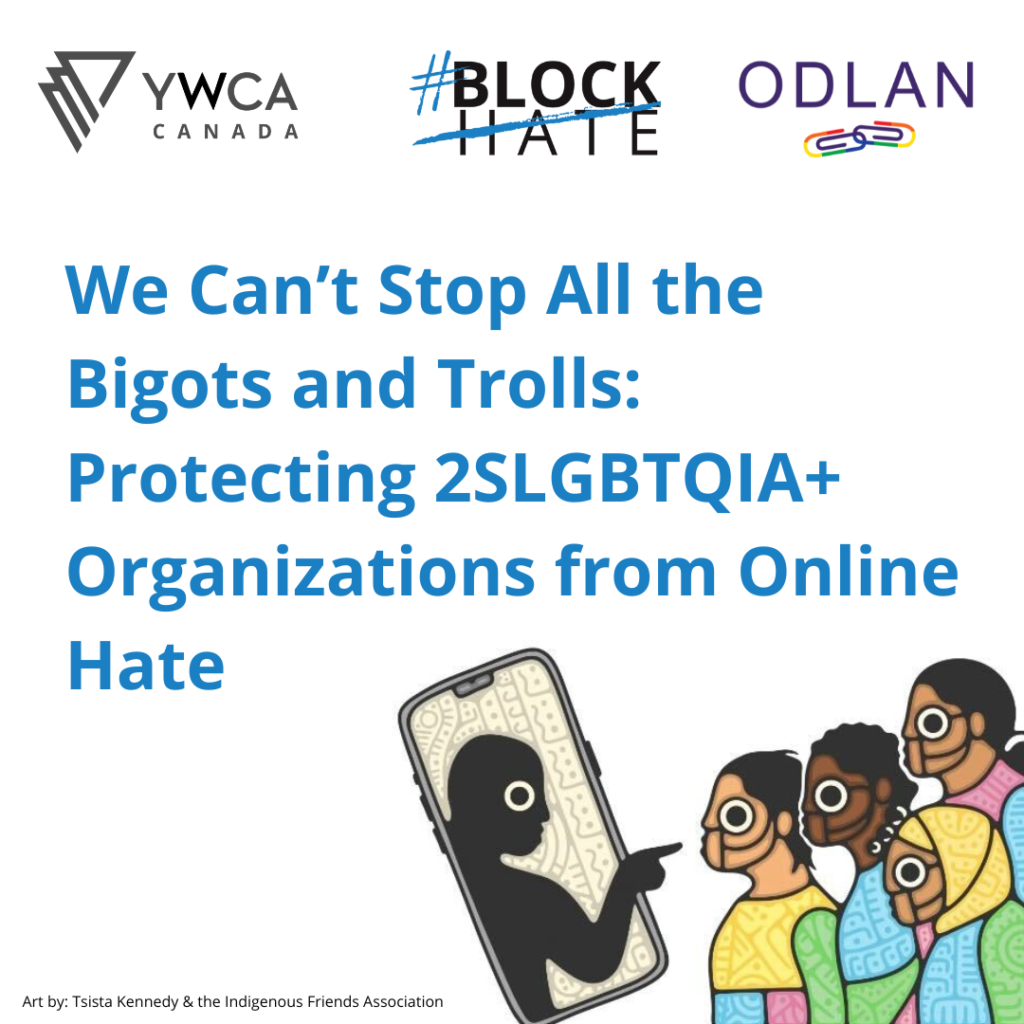The COVID-19 pandemic moved much of our everyday lives online. Everything from healthcare to education to entertainment to socializing now operated through a screen and we continue to operate in a heavily digitized world. Many 2SLGBTQIA+ organizations moved their services online at this time and while internet-based programming comes with many advantages for accessibility and visibility, there are still many risks for queer communities online. Unfortunately, anti-2SLGBTQIA+ harassment also made the jump to the online world and both digital and in-person queerphobia are on the rise in Canada.
When the pandemic began in 2020, Stephanie Jonsson and Hannah Maitland founded the Ontario Digital Literacy and Access Network (ODLAN) to address some of the digital divide challenges that 2SLGBTQIA+ communities faced during the pandemic. 2SLGBTQIA+ older adults were especially vulnerable to social isolation and loneliness and often struggled to utilize the kinds of digital technologies that queer organizations now use to operate. To combat this isolation within queer communities, ODLAN created a database of free and easily accessible digital literacy resources and began connecting digital literacy and 2SLGBTQIA+ organizations so they could work together to create accessible and queer-inclusive digital services. Though there are now many more resources available to help queer communities access devices and learn about digital literacy, safety still remains a major concern.
Anti-2SLGBTQIA+ online hate campaigns threaten the democratic rights of 2SLGBTQIA+ people (Quintal, 2022; Tran, 2022). Anti-2SLGBTQIA+ sentiments spread through memes, GIFs, videos, and other digital media that depict 2SLGBTQIA+ people as potential predators and abusers (Quintal, 2022). For example, Transgender women are targeted in online anti-2SLGBTQIA+ propaganda by being “depicted as predators whose only motivation for transitioning is to access women’s spaces to victimize young girls” (Quintal, 2022). Derogatory depictions are circulated by anti-2SLGBTQIA+ groups and people who share them on popular social media sites like Instagram, TikTok, Facebook, and Twitter. According to the Canadian Anti-Hate Network, these tropes threaten 2SLGBTQIA+ communities by circulating online propaganda intended to discredit scientific knowledge supporting gender and sexual diversity. Online threats toward 2SLGBTQIA+ events in Canada have risen because of harmful anti-2SLGBTQIA+ rhetoric (Tran, 2022).
Even though ODLAN strives to serve as many people as possible with our digital literacy database, we have had to limit our social media presence to avoid harassment and keep our community safe. This is not a unique experience for 2SLGBTQIA+ groups and many of our peer organizations have also experienced online harassment, threats, and doxxing of their members. ODLAN Co-Founder Stephanie Jonsson reflected on the decision to limit the organization’s online exposure based on her experience managing social media pages for other 2SLGBTQIA+ organizations. She observed that boosted posts received “a flood of hate from folks who weren’t our target audience.” Since their launch, ODLAN has been intentional in their communications and knowledge mobilization methods to engage their core community and minimize negative attention.
Queerphobic harassment continues to escalate in Canada but there is still very little Canadian research on how this kind of cyber violence is impacting queer communities. ODLAN has decided to take action against online hate by initiating research with other Canadian 2SLGBTQIA+ organizations to explore how people working with queer organizations are experiencing and combating transphobic online hate. The Digital Citizenship Contribution Program supports projects that will strengthen Canada’s resilience against online harm and disinformation and they are supporting our project “Possible Practices for Protecting Organizations from Queerphobic Online Hate.” Once this research is complete and we have insight into what other organizations have done to combat online hate, ODLAN will be hosting educational workshops to foster a community discussion with 2SLGBTQIA+ organizational leaders on their experiences and preventative measures implemented for community and personal safety.
This project is funded by the Digital Citizenship Contribution program and is being completed with the support of Rainbow Faith and Freedom and Wisdom2Action.
